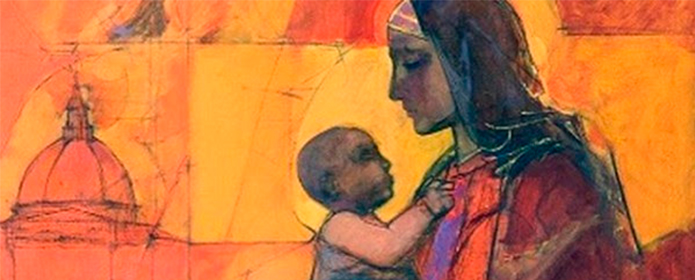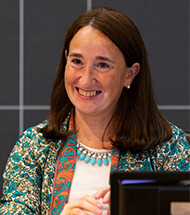"We have to understand how reality is perceived in a technologised society in order to be able to teach as well as learn.
Charo Sádaba opened the I workshop Online update of the ISCR of the University of Navarra in which more than 600 people participated.


"We have to understand how reality is perceived in a technologised society in order to be able to teach and also to learn". This is what Professor Charo Sádaba said at the 1st Online workshop of update of the high school Superior of Religious Sciences of the University of Navarra. The central topic was 'Christianity and contemporary society' and was attended by more than 600 people.
The dean of the academic centre's School speech gave the first of four sessions entitled 'Communicating with a changing humanity'. She stated that "if we want to be valid interlocutors in the society in which we live, we have to know the keys to play, not to follow the current of what we like, but to adapt and understand them".
In his message he recalled that there are four major trends in society that have been magnified by the pandemic: "First, a radical crisis of common or accepted values. Western societies have reached a plateau of social welfare, so that some goals that were previously fought for with values are considered to have been achieved. Secondly, there is a loss of a sense of history. We believe that history has little to teach us because these historical figures do not represent you according to the values of our society today. Thirdly, we live in a society where emotions acquire a substantive rank. We come from a long period where emotions were in the background and suddenly we are at the other extreme. And, fourthly, we are facing a technologised society. In fact, here we are following the session through a platform. We don't know if it is better or worse. What we do know is that technology modifies our perception of space and time and, therefore, of our reality.
In this sense, he pointed out the need to learn new pedagogical models to be able to teach: "We need to connect with people to be able to talk to them". And he emphasised the importance of trust and listening. "We need to listen twice as much as we talk," he concluded.
"The better educated we are, the more we can offer to others.José Luis Pastor, Deputy Director of high school, was in charge of introducing the different speakers at the workshop, which began with professor and priest Fermín Labarga, the new director of high school. In his words, he thanked his predecessor José Manuel Fidalgo for his 13 years of work and introduced himself to the students, to whom he reminded them of the importance of the training of a Catholic. To this end, he used the words of Saint John Paul II: "The lay faithful must be well trained to live as members of the Church and of society, because the better we are trained, the more we can offer to others". He also stressed the importance of maintaining a unity of life in order to be able to speak of a Catholic convinced by his or her faith.
In addition to the inauguration and the lecture by Professor Charo Sádaba, three other sessions will complete the workshop: 'Biblical Theology: past, present and future', by Professor Francisco Varo from School of Theology; 'Genealogy of the West: Why is it so important to maintain the balance between tradition and innovation', given by Professor Jaume Aurell from School of Philosophy and Letters; and 'The academic programs of the high school Superior of Religious Sciences', offered by Natalia Santoro, administrative assistant Academic of high school.
